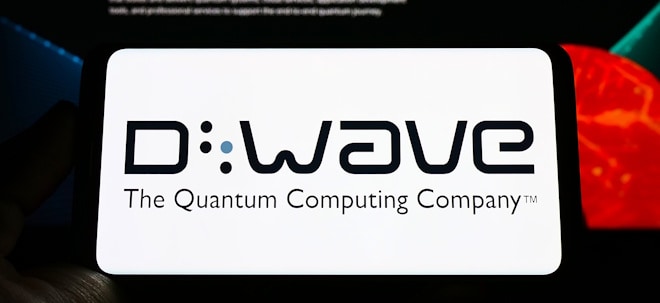Pivot Bio Expands World-Class Scientific Advisory Board to Advance the Future of Crop Nutrition
Top global experts in crop nutrition, agronomy, and sustainable agriculture
join Pivot Bio's Scientific Advisory Board to guide innovation and platform
growth
MINNEAPOLIS, July 16, 2025 /PRNewswire/ -- Pivot Bio, one of the world's most innovative agtech companies, today announced an expansion of its Scientific Advisory Board.
Three distinguished scientists have joined the company's Scientific Advisory Board, bringing world-renowned expertise in crop physiology, soil microbiology, digital agriculture and leading next-gen ag expertise to help shape its innovation agenda. These appointments come as Pivot Bio expands its platform to support the next generation of sustainable crop nutrition technologies.
Fred Below, Ph.D., Bruno Basso, Ph.D., and Chuck Rice, Ph.D. are the newest additions to a world-class group of scientific and industry leaders.
As Pivot Bio continues to expand its scientific platform and global reach, the Scientific Advisory Board plays a critical role in ensuring the company remains at the forefront of sustainable crop nutrition. Through regular engagement across key disciplines, including microbial discovery, formulation, agronomy, and digital insights, Scientific Advisory Board members provide expert guidance that informs Pivot Bio's innovation priorities.
"These industry leaders bring global networks and are important advisors for breakthrough research, emerging technologies, and new collaboration opportunities that align with Pivot Bio's mission to transform agriculture," said Chris Abbott, Chief Executive Officer, Pivot Bio. "Solving some of the world's biggest agricultural challenges will require bold thinking and trusted partnerships to drive shared progress. We are grateful to these luminaries for joining us on this journey."
"We are honored to have such an important group of scientists and innovators advising Pivot Bio on our transformational journey to empower the world's farmers with new tools and technology to grow more with less," said Karsten Temme, founder and Chief Innovation Officer, Pivot Bio. "At Pivot Bio, science has always been our foundation, and the expansion of our Scientific Advisory Board reflects the monumental advancements that have been made, and equally important, the path ahead. These world-class leaders bring deep expertise at the cutting edge of crop production, soil science, and climate resilience. Their insights will help shape our discovery engine, validate impact at scale, and push us to think bigger as we build a platform that redefines the future of agriculture. I'm honored to learn from them and grateful for their partnership."
New Appointments to the Scientific Advisory Board:
Fred Below, Ph.D.
Professor of Crop Physiology, University of Illinois
A legendary figure in modern agronomy, Dr. Below's frameworks—such as the "Six Secrets of Soybean Success" and the "Seven Wonders of the Corn Yield World"—have reshaped how growers optimize yield. His practical, field-based insights will be instrumental as Pivot Bio scales adoption and maximizes agronomic performance across diverse geographies.
Bruno Basso, Ph.D.
John A. Hannah Distinguished Professor, Michigan State University
A global authority in digital agriculture and environmental modeling, Dr. Basso leads multiple national and international initiatives advancing next-generation agricultural modeling and digital technologies to enhance decision-making—from smallholder farmers in the developing world to large-scale producers and policymakers operating at local, national, and global scales. His work will strengthen Pivot Bio's modeling, sustainability measurement, and impact validation capabilities.
Chuck Rice, Ph.D.
University Distinguished Professor of Soil Microbiology, Kansas State University
A leading voice in global soil health and climate resilience, Dr. Rice was a co-recipient of the 2007 Nobel Peace Prize for his contributions to the UN Intergovernmental Panel on Climate Change. His expertise in microbial science and environmental outcomes will further ground Pivot Bio's platform in robust, real-world impact.
Honoring a Legacy: Dr. Chris van Kessel
Pivot Bio also celebrates the extraordinary contributions of Dr. Chris van Kessel, who is stepping down from the Scientific Advisory Board after years of visionary service. A transformational leader who built one of the world's premier plant sciences programs, Dr. van Kessel pioneered research in nitrogen fixation and sustainable cropping systems that has fundamentally shaped modern agricultural science. As the founding chair of UC Davis's Department of Plant Sciences—created through the merger of four departments into one of the largest on campus—he established a legacy of interdisciplinary excellence spanning basic research to field application. His groundbreaking work on nitrogen cycling, soil fertility, and nutrient use efficiency has generated over 15,000 citations and provided the scientific foundation for developing more sustainable and productive agricultural systems.
In retirement, Dr. van Kessel continues to inspire, recently launching a 10,000-kilometer cycling challenge in his native Netherlands to raise funds for childhood cancer research in honor of his nephew and survivor, Tijn. Donations are still welcome! Pivot Bio has deep gratitude for Dr. van Kessel, for his leadership, mentorship, and enduring example.
Pivot's full Scientific Advisory Board includes:
Christopher Voigt, Ph.D.
Daniel I.C. Wang Professor of Advanced Biotechnology, MIT; Co-founder, Pivot Bio
A visionary in synthetic biology who bridges computation and life sciences, Dr. Voigt co-directs MIT's Synthetic Biology Center where he develops genetic circuits that program cells like computers. His pioneering work refactoring nitrogen fixation genes and creating the Cello software platform—which allows scientists to program living cells using principles from electronic design—provided the foundational technology for Pivot Bio. As the former founding Editor-in-Chief of ACS Synthetic Biology and mentor to founders of companies like Fieldstone Bio, Asimov Bio, and Robigo, his influence extends across the entire bioengineering landscape.
Jean-Michel Ané, Ph.D.
Professor of Plant & Agroecosystem Sciences and Bacteriology, University of Wisconsin-Madison
An internationally recognized expert in symbiotic nitrogen fixation, Dr. Ané has dedicated his career to unlocking nature's solution to synthetic fertilizer dependence. His research revealing how plants and microbes communicate to form beneficial partnerships—and his vision for engineering these associations in non-legume crops—provides critical scientific guidance for Pivot Bio's platform. From studying nitrogen-fixing maize in Mexico to developing tools for crop-microbe interactions, his work bridges fundamental discovery with agricultural transformation.
Gloria M. Coruzzi, Ph.D.
Carroll & Milton Petrie Professor of Biology, NYU; Member, National Academy of Sciences
A trailblazer in plant systems biology who decoded how plants sense and utilize nitrogen, Dr. Coruzzi has fundamentally transformed our understanding of nitrogen use efficiency through pioneering time-based gene network analysis. Her lab's development of predictive network models and their functional validation in plants—combined with 10 patents on nitrogen-responsive gene networks—provides the scientific blueprint for creating crops that require less fertilizer. Recipient of the ASPB Stephen Hales Prize and author of over 200 papers, her work bridges molecular discovery to field applications in rice and maize.
Ray Dixon, Ph.D., FRS
Professor of Molecular Microbiology, John Innes Centre; Fellow, Royal Society
The scientist who first proved nitrogen fixation could be engineered by transferring nif genes between bacteria, Dr. Dixon has spent 50 years unraveling how microbes sense and respond to environmental signals to control this vital process. From his 1972 breakthrough creating the first engineered diazotroph to current work defining minimal genetic requirements for eukaryotic nitrogen fixation, his research established the molecular blueprint for biological nitrogen fixation. His deep understanding of regulatory networks—particularly how oxygen, nitrogen status, and metal availability control gene expression—provides essential guidance for engineering robust nitrogen-fixing systems.
Richard A. Ferrieri, Ph.D.
Emeritus Research Professor, University of Missouri Research Reactor Center and Department of Chemistry
A visionary who revolutionized plant science by pioneering the application of medical imaging technology to agriculture, Dr. Ferrieri developed the world's first radiolabeled plant hormone for PET imaging, enabling real-time visualization of plant stress responses and resource allocation. His groundbreaking radiochemical tools reveal the hidden mechanisms of plant-microbe interactions and nutrient utilization—providing unprecedented insights into how crops optimize nitrogen and carbon under stress. His expertise in visualizing complex root-soil-microbe dynamics helps advance Pivot Bio's understanding of engineered microbe performance in real-world field conditions.
David Kanter, Ph.D.
Associate Professor of Environmental Studies, NYU; Chair, International Nitrogen Initiative
An influential voice at the intersection of agriculture, environment, and policy, Dr. Kanter transforms how governments and industries manage nitrogen's dual nature as essential nutrient and major pollutant. His research on technology-forcing policies and whole-system approaches to nutrient management—recognized by the EPA and integrated into the EU's Farm to Fork Strategy—provides crucial frameworks for companies like Pivot Bio operating at the frontier of sustainable nitrogen solutions. His unique background spanning chemistry, law, and environmental policy brings essential perspective to complex agricultural challenges.
Luis M. Rubio, Ph.D.
Research Scientist, CSIC; Professor, Universidad Politécnica de Madrid
A world authority on nitrogenase biochemistry and engineering, Dr. Rubio leads the ambitious quest to transfer nitrogen-fixing capabilities directly into cereal crops. His pioneering achievements—including the first complete synthesis of the nitrogenase FeMo-cofactor and the first expression of an active nitrogenase component in a eukaryotic organism—have laid the foundation for engineering self-fertilizing crops. As recipient of an ERC Starting Grant and leader of the Bill & Melinda Gates Foundation's BNF-Cereals project, his work bridges fundamental metallobiochemistry to practical solutions for global food security.
Gary Stacey, Ph.D.
Curators' Distinguished Professor, University of Missouri; Fellow, AAAS, AAM, ASPB
A pioneering force in plant-microbe interactions for over four decades, Dr. Stacey fundamentally changed our understanding of how plants recognize and respond to nitrogen-fixing bacteria. His groundbreaking discovery that non-legume plants like corn and tomatoes can perceive rhizobial signals—overturning decades of scientific dogma—opened new possibilities for engineering nitrogen fixation beyond legumes. With 300+ publications (h-index 101), multiple patents supporting commercial rhizobial inoculants, and a research program spanning from molecular signaling to field applications, his work provides the scientific foundation for next-generation biological nitrogen solutions.
Eric W. Triplett, Ph.D.
Professor and Chair, Department of Microbiology and Cell Science, University of Florida
A pioneering microbiologist who has transformed our understanding of microbial communities across human health and agriculture, Dr. Triplett leads groundbreaking research connecting gut microbiome disruptions to autoimmune diseases like type 1 diabetes and celiac disease using samples from a variety of human cohorts. His innovative work spans from developing the first model system for citrus greening disease to discovering bacterial associations with premature birth and neurodevelopmental conditions establishing him as a master of microbial ecology across diverse environments. With expertise in nitrogen fixation, antimicrobial resistance in agricultural systems, and the complex interactions between plants and their microbial partners, his research provides essential insights into how beneficial microbes can be harnessed to improve both crop health and human wellness.
Additional Scientific Advisory Board members will be named in the coming months.
About Pivot Bio:
Pivot Bio, one of the world's leading innovative agtech companies, delivers to farmers patented crop nutrition technologies that harness the power of nature to reliably and productively grow the food the world needs in the face of increasing volatility.
Currently available in North America and soon in Brazil, the company's products are a breakthrough innovation and one of the agriculture industry's most promising climate solutions. Pivot Bio has been recognized three times by TIME magazine on its annual list of best inventions, by Fast Company on its World Changing Ideas and World's 50 Most Innovative Companies lists, by CNBC on its Disruptor 50 list of private companies, by Fortune on its Impact 20 list of startups driving social good and by MIT Tech Review as one of 15 climate tech companies to watch.
For more information, visit pivotbio.com
![]() View original content to download multimedia:https://www.prnewswire.com/news-releases/pivot-bio-expands-world-class-scientific-advisory-board-to-advance-the-future-of-crop-nutrition-302505957.html
View original content to download multimedia:https://www.prnewswire.com/news-releases/pivot-bio-expands-world-class-scientific-advisory-board-to-advance-the-future-of-crop-nutrition-302505957.html
SOURCE Pivot Bio, Inc



